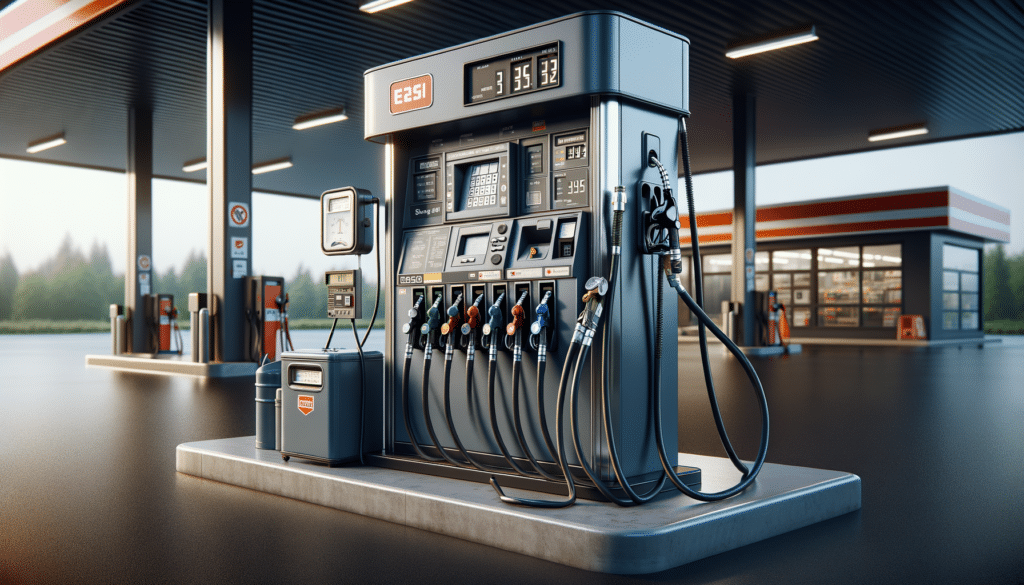The Role of Diesel Pumps in Modern Industry
Diesel pumps are integral components in many industrial sectors, providing the necessary power and efficiency for fuel delivery systems. Their importance cannot be overstated, as they ensure that diesel engines, which are widely used in transportation, agriculture, and construction, receive the fuel they need to operate effectively. Diesel pumps are known for their durability and efficiency, making them a preferred choice in environments where reliability is paramount.
In the transportation industry, diesel pumps are essential for fueling large vehicles such as trucks, buses, and ships. These pumps ensure that diesel engines run smoothly, providing the necessary power to transport goods and people across long distances. In agriculture, diesel pumps are used to power machinery like tractors and harvesters, which are vital for food production. In construction, they are employed in equipment such as excavators and bulldozers, enabling the completion of heavy-duty tasks.
Key benefits of diesel pumps include:
- Durability: Designed to withstand harsh environments and heavy use.
- Efficiency: Provides consistent fuel delivery, optimizing engine performance.
- Versatility: Suitable for a wide range of applications across different industries.
The role of diesel pumps extends beyond mere fuel delivery; they are crucial in maintaining the functionality and efficiency of diesel-powered machinery, contributing significantly to the productivity of various sectors.
Types of Diesel Pumps and Their Applications
Diesel pumps come in various types, each designed to meet specific needs and applications. Understanding these types is essential for selecting the right pump for a given task. The most common types include:
- Rotary Vane Pumps: Known for their simplicity and efficiency, these pumps are often used in smaller applications where precise fuel delivery is required.
- Gear Pumps: These are robust and capable of handling high-pressure applications, making them suitable for industrial environments.
- Diaphragm Pumps: Ideal for situations where leakage must be minimized, they are often used in hazardous environments.
Each type of diesel pump has its own advantages and limitations, and choosing the right one depends on factors such as the required flow rate, pressure, and the nature of the fluid being pumped. For instance, rotary vane pumps are excellent for low-viscosity fluids, while gear pumps are better suited for thicker fluids.
The application of diesel pumps is vast, covering areas like:
- Fuel transfer in fuel stations and distribution centers.
- Supplying fuel to industrial machinery and generators.
- Use in agricultural irrigation systems.
By selecting the appropriate type of diesel pump, industries can ensure efficient and reliable fuel delivery, enhancing their operational capabilities.
Technological Advancements in Diesel Pumps
With the advancement of technology, diesel pumps have seen significant improvements in terms of efficiency, control, and environmental impact. Modern diesel pumps are equipped with advanced features that enhance their performance and reduce emissions, aligning with global efforts to promote sustainability.
Some of the technological advancements include:
- Electronic Fuel Injection (EFI): Provides precise control over fuel delivery, improving engine efficiency and reducing emissions.
- Variable Displacement Pumps: Adjust the flow rate according to the engine’s demand, optimizing fuel consumption.
- Integrated Monitoring Systems: Allow for real-time monitoring and diagnostics, reducing downtime and maintenance costs.
These innovations not only improve the performance of diesel pumps but also contribute to a reduction in the environmental footprint of diesel engines. By adopting these advanced technologies, industries can achieve greater efficiency and sustainability in their operations.
Maintenance and Troubleshooting of Diesel Pumps
Regular maintenance of diesel pumps is essential to ensure their optimal performance and longevity. Proper maintenance practices can prevent costly repairs and downtime, ensuring that the pumps function efficiently.
Key maintenance practices include:
- Regularly inspecting and cleaning filters to prevent blockages.
- Monitoring and maintaining proper pressure levels to avoid pump strain.
- Ensuring seals and gaskets are intact to prevent leaks.
Troubleshooting common issues with diesel pumps involves identifying symptoms such as reduced flow rate, unusual noises, or leaks. Addressing these issues promptly can prevent further damage and maintain the pump’s efficiency. For example, a reduced flow rate may indicate a clogged filter, while unusual noises could suggest mechanical wear or damage.
By adhering to a regular maintenance schedule and promptly addressing any issues, industries can ensure the reliable operation of their diesel pumps, minimizing disruptions and maximizing productivity.
The Future of Diesel Pumps
As industries continue to evolve, the future of diesel pumps looks promising, with ongoing advancements aimed at enhancing their efficiency and reducing their environmental impact. The integration of smart technologies and sustainable practices is expected to play a significant role in shaping the future of diesel pumps.
Future trends in diesel pumps may include:
- The development of hybrid systems that combine diesel and electric power for greater efficiency.
- Increased use of biofuels and alternative fuels to reduce emissions.
- Advancements in materials and design to improve durability and performance.
These developments will not only improve the functionality of diesel pumps but also contribute to broader efforts to achieve sustainable industrial practices. As industries adapt to changing environmental regulations and consumer demands, diesel pumps will continue to play a vital role in powering the machinery and equipment that drive economic growth.
In conclusion, diesel pumps are essential components in various industries, providing reliable and efficient fuel delivery systems. With ongoing technological advancements and a focus on sustainability, they are poised to remain a key element in industrial operations for years to come.




